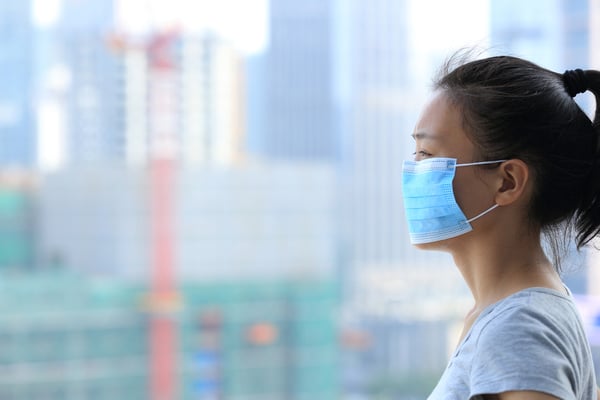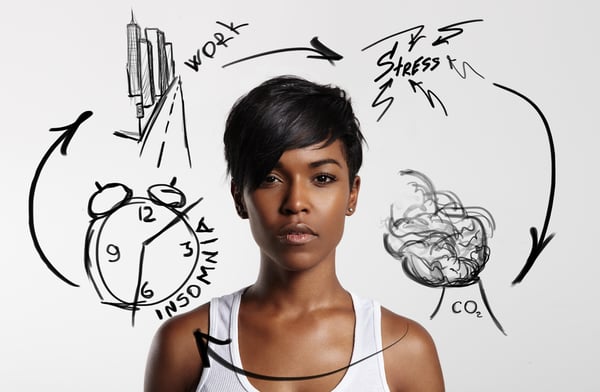Millennial consumers are buying the most skin care and beauty products of any other demographic in the world right now, fueling an industry that is projected to reach a global valuation of over $155 billion within the next two years. In order to become appealing to younger consumers, skin care companies are looking for ways to make their product seem more appealing and fit specifically to their needs, or at least seem that way.
To attract the millennial consumer, brands hope to address skin concerns and overall anxieties toward health that make it palatable. Many live in cities and work long hours but become increasingly concerned with how that may impact their overall mental and physical health. Skin care, though it may represent a massive global market, is a much more affordable, temporary fix to their problems and stresses than the commitment of a move or major investments in healthcare. In the United States, for example, the ease and accessibility of skin care makes it a more affordable form of self care, and retail therapy, than investments in a more expensive healthcare plan. For many, throwing on a face mask or using a skin care routine as a form of meditation is cheaper and more realistic than going to therapy.
Millennials are concerned with the way the environment has an impact on their health, but leaving major cities in favor of good skin is an unrealistic way to cope with the problem. Instead, the rise of skin care products that are advertised to have “anti-pollution” benefits have seen growth among urban markets to help consumers feel that they’re doing more to combat the impact of the environment on their personal health. To capitalize on this, skin care and beauty companies are creating products with ingredients that are advertised to combat the signs of aging created by urban stressors like pollution, hectic work schedules often associated with urban living, smoking, and exposure to the sun's radiation. Antioxidants in skin care that neutralize the free radicals found in pollution, SPF products that prevent aging from sun exposure, and other anti-aging products are marketed toward the fear that the air around you is going to give you wrinkles.
How urban environments change our skin
But whether urban environments are more likely to impact how your skin looks is not a subject of debate, as studies have shown that pollutants in the air and UV radiation can contribute to premature aging and changes to your skin. Air pollution can sit on the skin, creating a layer of dirt and grime that clogs pores and contributes to issues with acne, but also absorb into your skin to create other problems like cell oxidation, which contributes to a dull appearance and signs of aging. In many cases, the dirt in the air is smaller than pores, making it possible to absorb into the deeper layers of your skin and impact your health in other ways. Even if it does not absorb deep into your skin, it can still alter your collagen and lipid production to change the way your skin looks and feels. This can show itself in the form of changes to your complexion and a disruption to your hydration barrier.

Pollution that manages to make its way into your skin creates unstable molecules called free radicals that can alter your health and even your DNA—which could lead to cancer over long periods of time and exposure. Pollutants from cigarette smoke, for example, can make skin appear dingy and wrinkly as the molecules in the smoke absorb moisture and prevent your skin from being able to stay supple and plump, two key elements of a healthy complexion. Antioxidants and toners help to neutralize these free radicals, while skin care products like clay masks can help draw these pollutants out of your skin. Ingredients like Calendula Flower from Bio Botanica or Megassane from Givaudan help to neutralize free radicals and protect skin from air pollutants. Meanwhile Birch Charcoal Powder from Innmost is a popular active ingredient in clay masks that helps draw out impurities from deep within the skin, helping with hyperpigmentation and other issues like inflammation. Hydrating ingredients, like Hyaluronic Acid from Aston Chemicals, AC HA from Soho Aneco, or Sodium Hyaluronate from McKinley Resources are all becoming popular in urban environments where hydration is becoming harder to maintain in the presence of pollution, particularly in China.
How stress and sleep impact skin
Pollution is not the only aspect of urban stress that plays a major role in how your skin looks and feels. Consumers are increasingly investing in skin care and beauty products that are designed to help them relax and de-stress from a hectic urban environment. It’s no secret that stress can affect your skin and overall health, as consumers have long-known that stress can contribute to breakouts and oil production (particularly if a fast-paced environment forces you to eat unhealthy food and forego certain levels of hygiene). Stress can also contribute to premature aging in skin and hair, so personal care companies are cashing in on this by marketing their products to consumers in a way that promotes mental health as well as physical health.

Products with ingredients like lavender and eucalyptus oil have long been used to help consumers feel that their personal care products are relaxing them while serving a greater purpose. Bath & Body Works, a company that mainly sells candles and hand soaps, launched a “wellness” collection in the last decade to help consumers unwind after a long day. The products are fairly affordable and range from hand lotions to aromatherapy candles. Each product is marketed based on the purpose it serves the consumer. Products infused with lavender and vanilla bear the name “sleep,” while a citrus-infused product may be advertised as simply “happiness.” This direct to consumer brand saw that its customers would benefit from products that served a greater purpose to their mental wellbeing and decide to cater to it. Since launching the products, the company has seen a major growth in sales.
But it isn’t just brands like Bath & Body Works that have seen growth in sales from the business of de-stressing. While spas and retreats are expensive, products like essential oils and aromatherapy are affordable and accessible to all. The global essential oil market makes up a nearly $30 billion valuation, and it’s expected to rise in the next couple of years. Products designed to help boost skin health during sleep (such as sleeping masks and other night-time products rich in hydration and ceramides) are becoming popular among millennial demographics.
Skin care for mental health
Aside from products with fragrance intended to help de-stress and contribute to better sleep, the beauty and personal care industry is an affordable place for busy millennials to turn to as a way to unwind. The 10-step Korean skin care routine may be lengthy, but each of its steps are often considered its own type of meditation, particularly among demographics that have little time to contribute to their mental wellbeing. Brands can easily tap into the wellness industry without changing their ingredients and chemical composition by adjusting their marketing strategies. Products like sheet masks are often marketed as part of a “self care” routine despite having little to do with wellness beyond giving a boost of hydration to your face.
The skin care and beauty industry has, over the last couple of years, become synonymous with wellness because of its accessibility and marketing strategies. Brands like Fur incorporate elements of nature into their marketing to help consumers feel that the product will deepen their connection to nature and, by default, contribute to their mental health. The brand also advertises its products being used for bubble baths and other methods of relaxation, helping consumers see themselves living a more fulfilling and happy life with their products. Hundreds of memes that circulate the web highlight this phenomenon, and despite the fact that millennials are aware that face masks and expansive skin care routines are hardly a sufficient substitute for a slower-paced lifestyle and sufficient sleep schedules, they can’t seem to get enough.
Disclaimer: The information provided (on our blog) is accurate to the best of our knowledge, however, there may be errors. As a neutral organization, we at Covalo do not advocate or promote certain products or ingredients on our platform as better than others. The Site may contain (or you may be sent through the Site) links to other websites or content belonging to or originating from third parties or links to websites and features in banners or other advertising. Such external links are not investigated, monitored, or checked for accuracy, adequacy, validity, reliability, availability or completeness by us. For more information on our blog, contact social@covalo.com


